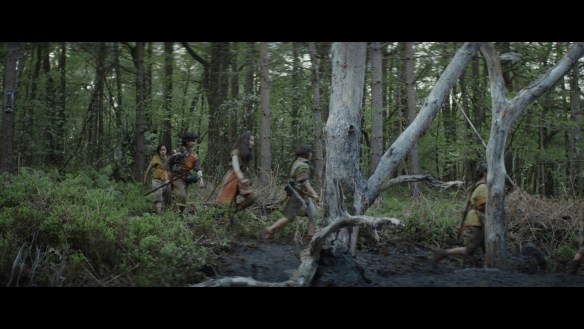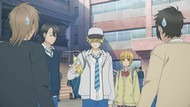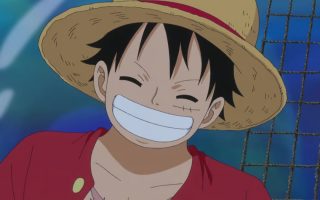Hello folks, and welcome back to Wrong Every Time. Today I thought we’d take a quick jaunt to a galaxy far, far away, as we check back in on the harried Cassian and his adventures in Andor. Our first episode offered an anxious pressure cooker of a premiere, with Cassian’s unintentional killing of two empire sentries instigating a pan-galactic manhunt at the hands of one overzealous deputy inspector. Meanwhile, Cassian himself is basically cashing in all favors, his pursuit of his long-lost sister temporarily yielding to the necessity of surviving the next forty-eight hours.
It was a gripping, grounded premiere on the whole, articulating the lived experience of the empire for those huddling below, with no great destiny or magical powers likely to save them. And Cassian himself embodies that refreshing realism; he is not seeking to change the world, he is only pursuing his sister, hoping to carve out some fragment of peace and normalcy under the omnipresent but frequently indifferent gaze of their oppressive overlords. Cassian isn’t a “chosen one,” he’s just determined and unlucky, one of the countless nobodies that fate has thrust into a position to do some meaningful, lasting good in the world. We are not naturally destined to kick fascism’s teeth in, but when that jaw is presented, it is our collective duty to kick with all our might. Let’s see how Cassian fares!
Episode 2
We begin with the hunting party of our flashback thread, using one of cinema’s most enduring adventure establishing shots: a zoom-in on a critter crawling across a tree or rock, followed by a racking of focus towards the active players beyond. Some tricks just work
The scene is framed like an exciting group adventure, a collective hike for treasure. One can’t help but notice how young this whole party is – Cassian is not the only one who seems unprepared for such danger
The intimate cheer of this community is immediately contrasted against the vast, anonymous, empire-inflicted deprivation of this planet, embodied through a massive strip-mining operation abutting their forest. Is this what claimed their parents?
The operation seems long abandoned, as the great earth-tilling machines have begun to collapse. A vast wound left on the planet, after the pillaging was complete
Love this introductory detail bringing us back to the present, as we follow the town’s “bell keeper” hammering out the last call on a great anvil. This is the sort of incidental invention I love in fantasy storytelling, and embodies why I’m so skeptical about endless franchises like Star Wars – the longer such series continue, the more genuinely novel moments like this are replaced by callbacks to previously novel moments, replacing discovery with nostalgia. Most of modern Star Wars feels particularly rife with the calcification of nostalgia; The Force Awakens was just A New Hope again, and Mandalorian seems like a procession of “hey, remember that thing” moments
A montage across the city as it concludes its day presents this community as a collective living organism, while also stoking anticipation – after all, this shall be the night that the word goes out for the Kenarian’s arrest
Yep, there’s the call. And of course, our mechanic Bix’s suspicious boyfriend Timm sees it as well
The news beats Cassian home, and is read back to him by Bee at the request of Maarva, an older woman who seems like family
She’s another Kenarian survivor. Apparently whatever happened there is worth concealing even without the murders, as we learn the two of them have always officially stated they are from Fest
I like how they keep talking over each other in their panic. It’s an extension of this show’s generally naturalistic dialogue, all of which humanizes these characters both through its specific texture and its messiness, its divergence from heroic, quippy convention. If you want your characters to feel pressured and panicked, you can’t also have them be firing off witty one-liners all the time
When asked what he’s done, he replies simply “I messed up.” What else can be said?
Cassian meets with Bix about the deal, while Timm sulks and spies from the bar. I’m enjoying all the frustrating precarity of these dominoes – Cassian gets unlucky a couple times in seemingly minor ways, yet the consequences are destroying his world
Timm is a fun character; he’s not evil, he’s not even wrong to worry, he just cannot conceive of the scale of retribution that him “helping” Bix will inflict on Cassian. This too is how fascism thrives – many theoretically well-meaning people simply cannot conceive of the brutality hiding behind the curtain, or busy themselves with their own concerns so completely that the violence feels totally abstract to them. The United States has reached the point of masked thugs dragging people into unmarked vans, yet still many millions of people assume there must be some order to this operation, some protocol that ensures nothing truly bad happens. There are many genuinely evil people, but also many more who are simply oblivious to moral consequences, who live comfortably enough to assume that everyone has more or less the same lot, faces more or less the same threat from their own government. Much of life under fascism goes on as normal, and many who cling to that normalcy make themselves oblivious agents of the state
Our go-getter meets with the sergeant who’ll be heading the retrieval operation, a real bulldog “no half measures” type
“I’ve been saying all along we need a stronger hand with these affiliated planets.” This man serves as a harsh contrast against Timm – while Timm’s essentially an unwitting servant of empire, this man embodies the cruelty and fury of a true believer. He wants nothing more than to be the boot itself
“There’s fomenting out there, sir. Pockets of fomenting.” The cretinous beetle-men of empire
The sense of an ambiguous threat closing in is then mirrored across two other sequences – first the Kenarians approaching the crash site, and then Cassian’s presumed buyer landing his craft. Given the portentous cinematography deliberately avoiding his face, we can likely assume this is the man who will make something of Cassian’s life, who will draw him into a cause larger than himself
This mythic framing continues as our buyer crests a hill to examine Cassian’s home, a cut that seems to intentionally draw on Caspar David Friedrich’s “Wanderer above the Sea of Fog,” even down to the cane in his right hand
Timm and Bix are purposefully separated visually during their shared morning routine, one or the other frequently caught behind a wall or alone in shadow. Their secrets and regrets hang heavily around them
Looking for Bee, Maarva comes across one of the blowguns used back on Kenari. One of their last fragments of home, and a natural transition back to our forest raid
At the crash site, one crewman awakes and immediately fires upon the party of children, earning himself a coating of presumably poisoned darts
Their adventure is not fun anymore. With their leader dead, the children retreat in tears, while Cassian takes one last, vengeful look back at the intruder. A lesson imparted young and forcefully, the casual inhumanity with which servants of empire treat those whose worlds they are squandering
“Abandoned after imperial mining disaster. Considered toxic.” In our present moment, an official distractedly lists off the apocalypse of Cassian’s home. Everything terrible is always far away; if it reaches close to home, then clearly some mistake was made. Thus people can continue to live happily and guilt-free even if their nation is, say, funding an active genocide
“You may remind residents that there’s a territorial forum once a month where they are free to make official complaints.” The soldiers chuckle amongst themselves, boys with their toys, certain of their safety in inflicting whatever cruelty they wish on the locals. Andor’s director has explicitly stated he didn’t model the series on any one conflict, and I believe him; history just repeats that way, and the fascist instinct within humanity tends to express itself in similar ways. The nazis of one era are the ICE agents of another, and the happy warriors of Andor here
Deputy Inspector Karn seems surprised and anxious to be called for a speech. He wanted all of this, but he’s still a child in his own way, uncomfortable driving the dogs he himself called to violence
The men are unmoved by his wavering, nebulous speech, full of platitudes about strength and commitment. They just want to crack some skulls
“Well said, sir. Inspiring.” It’s a contrast we’ve come to know well, particularly so in the post-Trump era – the agents of fascism are often genuinely pathetic creatures, yet that does nothing to diminish their danger
“Me, I’m in propulsion. We do add-ons and boosters.” Love this intrusion by an over-inquisitive salaryman as our buyer takes the tram into the city. It is not the great feats of singular heroism that define a world, it is the ground-floor texture, the day-to-day feeling of living within that space
“If you can’t find it here, it’s not worth finding.” A prophetic gesture towards this buyer’s discovery of Cassian himself
And Done
Aw jeez, that’s all we get!? But that’s just when the… agh, yeah, they got me again. I am so fucking invested in Cassian’s story at this point, and Andor on the whole continues to illustrate the ground-level lived experience of the empire with acuity and empathy, even for its pathetic agent of state violence. Though Karn is the reason Cassian is being pursued, he is himself little more than a boy in a man’s suit, draped in the ideals he wrongfully attributes to the hell-engine of the carceral state. Though his thugs know exactly what they are, Karn himself does not – a trait he shares with Cassian, who will not escape this day without learning some hard truths.
This article was made possible by reader support. Thank you all for all that you do.




